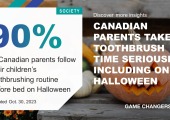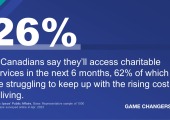Online Poker Still A Big Draw, But Security And Legitimacy Concern Many Would-Be Players
An estimated 15 million Americans play online poker for money, but the number of new players has been declining after the boom in the online gambling industry over the past few years, according to the results of the 2005 Online Poker Players Syndicated Study from Ipsos.
Poker enthusiasts cite security (51%) and legitimacy (49%) as a barrier to playing poker online for money, says Ipsos' survey of 2,167 Americans who otherwise showed an interest in poker, either as offline or online players or poker event spectators. A quarter of the survey's respondents (25%) had wagered on poker with real money at an online gambling site.
"There is still a lot of potential to convert non-online poker players to the online forum, but online gambling sites need to better communicate with potential customers, explaining how players' identity and credit card information is protected and providing assurance to the validity and legitimacy of their company," said Paul Lauzon, Senior Vice President of Ipsos in the Lotteries & Gaming Division. "Trustworthiness will be the characteristic of sites that continue to attract new customers despite the decline in online gambling growth."
The 2005 study further revealed that television and sponsorship of televised poker tournaments showed the most influence in attracting new players. Twenty-nine percent of online poker players said watching poker tournaments on TV held "a lot of influence" on their decision to begin playing poker online; a further 39% said poker on TV had "some influence" on their choice. Close behind was the influence of incentives or bonuses for signing up ("a lot of influence" for 28%, and "some influence" for 39%), and word of mouth from friends or relatives ("a lot of influence" for 30%, and "some influence" for 33%).
Television advertising for online poker sites proved to be the most effective, as 63% of respondents remembered seeing television commercials compared to 37% for Internet ads. Other forms of advertising were less noticeable: 15% for sponsorship of TV shows or events, 6% for newspaper or magazine ads, 4% for radio promotions, and 2% noticed billboards for online poker sites.
"With 123 operating real money poker rooms currently reviewed on pokerlistings.com, there is fierce competition: visibility is critical," added Lauzon. "And once sites have successfully attracted new players, they'll have to work harder than ever to make sure they stay. While many poker players are loyal to one or two sites, many are not. Retention of core customers is crucial, as the cost of acquiring new customers faces diminishing returns."
The 2006 wave of our study, Online Poker in America, will compare findings against those benchmarks established in 2005 and determine the impacts of recent political activity in this arena. We will also gather new information with respondents from both the U.S. and Canada.
More insights about Consumer Goods


![[WEBINAR] KEYS: Global Trends - The Uneasy Decade](/sites/default/files/styles/related_more_insights/public/ct/event/2025-09/thumbnail-templates_0.png?itok=Qh37M2xL)
![[WEBINAR] Canadian EV Adoption Trends in 2025](/sites/default/files/styles/related_more_insights/public/ct/event/2025-01/thumb.png?itok=RSGzZvMm)
![[WEBINAR] Sustainable Packaging: A Potential Avenue of Distinction](/sites/default/files/styles/related_more_insights/public/ct/event/2023-09/SustainablePackaging_WebR_feature%20copy.jpg?itok=X0DpNf_C)